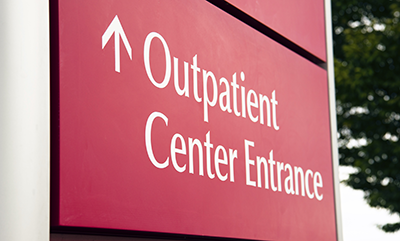In a big disappointment for 340B hospital organizations, the U.S. Centers for Medicare & Medicaid Services (CMS) announced late this afternoon that it will continue a nearly 30% reduction in place since 2018 in Medicare Part B reimbursement for hospitals’ 340B-purchased drugs and biologicals for 2022.
Rural sole community hospitals, children’s hospitals, and free-standing cancer hospitals will remain exempt from CMS’s 340B payment policy for separately payable drugs with non-pass-through status. CMS made the decision to retain the drug payment cut for many 340B hospitals in its calendar year 2022 hospital Outpatient Prospective Payment System (OPPS) final rule with comment. CMS released its OPPS final rule for public inspection late this afternoon.
“We believe that the current payment rate of ASP [average sales price] minus 22.5 percent represents the minimum discount that 340B covered entities receive, which more closely aligns the payment rate with the resources expended by 340B hospitals to acquire such drugs compared to a payment rate of ASP+6 percent, while also recognizing the intent of the 340B program to allow covered entities, including eligible hospitals, to stretch scarce resources in ways that enable hospitals to continue providing access to care for Medicare beneficiaries and other patients,” CMS said in its final rule.
“This rule aims to fulfill the goals of different federal programs, each of which helps ensure access to care for vulnerable populations,” CMS said. “We note, however, that the 340B program does not contemplate subsidization from Medicare in the form of payments far exceeding hospitals’ acquisition costs.” Hospital groups have made the exact opposite argument, saying that 340B program was not intended to help finance the Medicare program.
Since 2019, CMS has applied the same reduced ASP -22.5% payment rate to 340B-acquired drugs and biologicals furnished in non-excepted off-campus provider-based departments (PBDs) paid under the Physician Fee Schedule. That policy will continue next year.
CMS disputed several hospitals’ contention in comments on its OPPS CY 2022 proposed rule that they are losing money when dispensing certain drugs under the ASP -22.5% reimbursement rate.
Hospital acquisition cost survey data in 2020 showed the average 340B discount for affected outpatient drugs was about 34.7%, the agency said. “We would not expect any 340B hospital to have acquisition costs for any acquired drug that are greater than ASP minus 22.5 percent,” CMS said. “Therefore, we disagree that covered entities are, on average, losing money under the current 340B drug payment policy of ASP minus 22.5 percent for drugs purchased through the 340B drug program.”
CMS also said it respectfully disagrees with many commenters’ assertions “that our 340B drug
payment policy is illegal or an unlawful application of the law. We disagree with commenters
that the OPPS 340B payment policy has taken away resources designated for safety net hospitals and our internal analyses have not demonstrated any issues related to access of separately payable drugs as a result of the implementation of this policy.”
CMS said many commenters alleged that that private pharmacy benefit managers and
third-party payers are citing Medicare’s payment reduction to justify implementing similar
policies that provide lower reimbursement for 340B drugs compared to non-340B drugs.
“We note that CMS does not control policies created by private pharmacy benefit
managers and third-party payers regarding payment for 340B drugs compared to non-340B
drugs,” it said in response to those comments.
Eyes Turn to the Supreme Court
The U.S. Supreme Court has scheduled arguments for Nov. 30 on whether lower federal courts should defer to CMS’s position that federal law lets it set a lower drug reimbursement rate for 340B hospitals than for others. It is also reviewing whether hospital groups had the right to sue in the first place.
Hospital group 340B Health criticized CMS’s decision to continue the payment cut.
“Four years’ worth of Medicare cuts have taken their toll on 340B hospitals, some of which have been forced to cut crucial services or postpone expanding care that would have benefited their communities,” the group’s President and CEO Maureen Testoni said. “We remain concerned that more of these cutbacks will become necessary as the reductions persist.”
She said her group hopes the Supreme Court “will reverse a lower court ruling that upheld these damaging cuts.”


